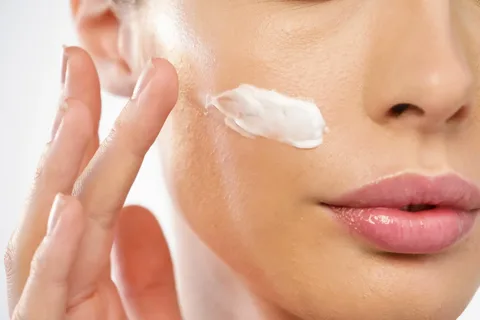As we age, our skin requires more targeted care. Fine lines, wrinkles, and dryness start to appear, and the need for hydration becomes essential. That’s why finding the best moisturizer for aging skin is a game-changer for your skincare routine. Whether you’re in your 40s, 50s, or beyond, the right product can deeply nourish, restore elasticity, and rejuvenate your complexion.
In this comprehensive guide, we’ll explore the top ingredients to look for, product recommendations, expert skincare tips, and answers to common questions
Table of Contents
- Why Moisturizing Matters as You Age
- What to Look for in an Anti-Aging Moisturizer
- Top 10 Best Moisturizers for Aging Skin
- Day vs Night Moisturizers: What’s the Difference?
- How to Apply Moisturizer for Maximum Results
- Best Moisturizer for Aging Skin Over 50
- Natural vs Clinical-Grade Moisturizers
- Common Myths About Anti-Aging Skincare
- Expert Tips for Glowing Mature Skin
- Conclusion: Your Perfect Anti-Aging Routine
- FAQs
Why Moisturizing Matters as You Age
As collagen production slows and cell turnover declines, the skin loses moisture and elasticity. This results in:
- Fine lines and wrinkles
- Sagging skin
- Uneven tone
- Dry, rough texture
A high-quality moisturizer can help replenish hydration, protect the skin barrier, and deliver anti-aging ingredients deep into the dermis.
What to Look for in an Anti-Aging Moisturizer
The best moisturizer for aging skin isn’t just hydrating—it’s restorative. Look for:
Retinol
Boosts collagen production and improves skin texture.
Hyaluronic Acid
Attracts and retains moisture for plumper skin.
Peptides
Signal skin to produce more collagen and elastin.
Antioxidants (Vitamin C, E, Green Tea)
Combat free radical damage and brighten the skin.
Ceramides
Strengthen the skin barrier and lock in hydration.
Top 10 Best Moisturizers for Aging Skin
Here are our 2025 top picks based on expert reviews, user ratings, and clinical results:
1. Olay Regenerist Micro-Sculpting Cream
- Peptides + Hyaluronic Acid
- Firms and lifts within 2 weeks
2. CeraVe Skin Renewing Night Cream
- Ceramides + Niacinamide
- Fragrance-free and great for sensitive skin
3. Neutrogena Rapid Wrinkle Repair
- Retinol SA + Glucose Complex
- Visible results in just 1 week
4. L’Oréal Paris Revitalift Triple Power
- Pro-Retinol + Vitamin C
- Smooths, brightens, and firms
5. Drunk Elephant Protini Polypeptide Cream
- Nine signal peptides
- Restores bounce and tone
6. La Roche-Posay Toleriane Double Repair
- Ceramide-3 + Glycerin
- Rebuilds skin’s protective barrier
7. RoC Multi Correxion 5-in-1 Daily Moisturizer SPF 30
- Broad spectrum SPF
- Targets discoloration and texture
8. Skinceuticals Triple Lipid Restore 2:4:2
- High lipid concentration
- Replenishes aging skin’s natural lipids
9. Kiehl’s Super Multi-Corrective Cream
- Jasmonic Acid + Beech Tree Extract
- Reduces 7 signs of aging
10. Augustinus Bader The Rich Cream
- TFC8® Technology
- Luxurious, science-driven repair
Day vs Night Moisturizers: What’s the Difference?
Day Creams
Often include SPF, lightweight, designed for under makeup.
Night Creams
Thicker, more nourishing, often contain retinol or peptides to work while you sleep.
How to Apply Moisturizer for Maximum Results
- Cleanse – Start with clean skin.
- Tone (optional) – Prepares skin to absorb actives.
- Serum – Apply before moisturizer for deeper treatment.
- Moisturize – Use upward strokes to lift and firm.
- Don’t Forget the Neck – It shows age quickly!
Best Moisturizer for Aging Skin Over 50
For skin 50+, look for formulations that are:
- Richer in texture
- Designed for hormonal changes
- Targeting deep wrinkles and age spots
🏆 Top Pick: Skinceuticals Triple Lipid Restore
Proven to improve fullness, smoothness, and radiance in mature skin.
Natural vs Clinical-Grade Moisturizers
Natural Moisturizers:
Gentle and plant-based (e.g., jojoba oil, aloe vera). Great for sensitive skin but often slower results.
Clinical Moisturizers:
Scientifically formulated with proven actives (e.g., retinol, peptides). Faster and more dramatic results, though may irritate sensitive skin.
Common Myths About Anti-Aging Skincare
Myth: You only need anti-aging products after 40
Truth: Prevention starts in your 20s with hydration and sunscreen.
Myth: More expensive means more effective
Truth: Some drugstore products outperform luxury brands.
Myth: Natural = Always better
Truth: “Natural” isn’t regulated and doesn’t mean safer or more effective.
Expert Tips for Glowing Mature Skin
- Hydrate inside and out – Drink water and use a humectant-rich moisturizer.
- Wear SPF daily – Sun damage is the #1 cause of premature aging.
- Be consistent – Anti-aging results take time and regular application.
- Use actives wisely – Introduce retinol slowly to avoid irritation.
- Exfoliate gently – Helps product absorption and improves skin texture.
Conclusion: Your Perfect Anti-Aging Routine
Finding the best moisturizer for aging skin is essential to maintaining a youthful, radiant appearance. The ideal product for you will depend on your skin type, age, and goals—but the right choice can significantly reduce signs of aging, hydrate your skin, and boost your confidence.
Remember, skincare is not just about looking younger—it’s about feeling great in your skin.
FAQs
Q1: What is the best moisturizer for aging skin over 60?
A: Rich creams with ceramides, peptides, and lipids like Skinceuticals Triple Lipid Restore are excellent for mature skin over 60.
Q2: Can I use anti-aging moisturizers every day?
A: Yes, daily use is recommended. Start slowly with products that contain retinol to avoid irritation.
Q3: Are natural moisturizers effective for aging skin?
A: They can be hydrating but often lack the active ingredients needed for firming or wrinkle reduction.
Q4: Should I use different moisturizers for day and night?
A: Ideally, yes. Day creams often include SPF, while night creams focus on repair and rejuvenation.
Q5: How long before I see results?
A: You may see hydration effects immediately, but improvements in tone, texture, and wrinkles typically take 4–12 weeks.



